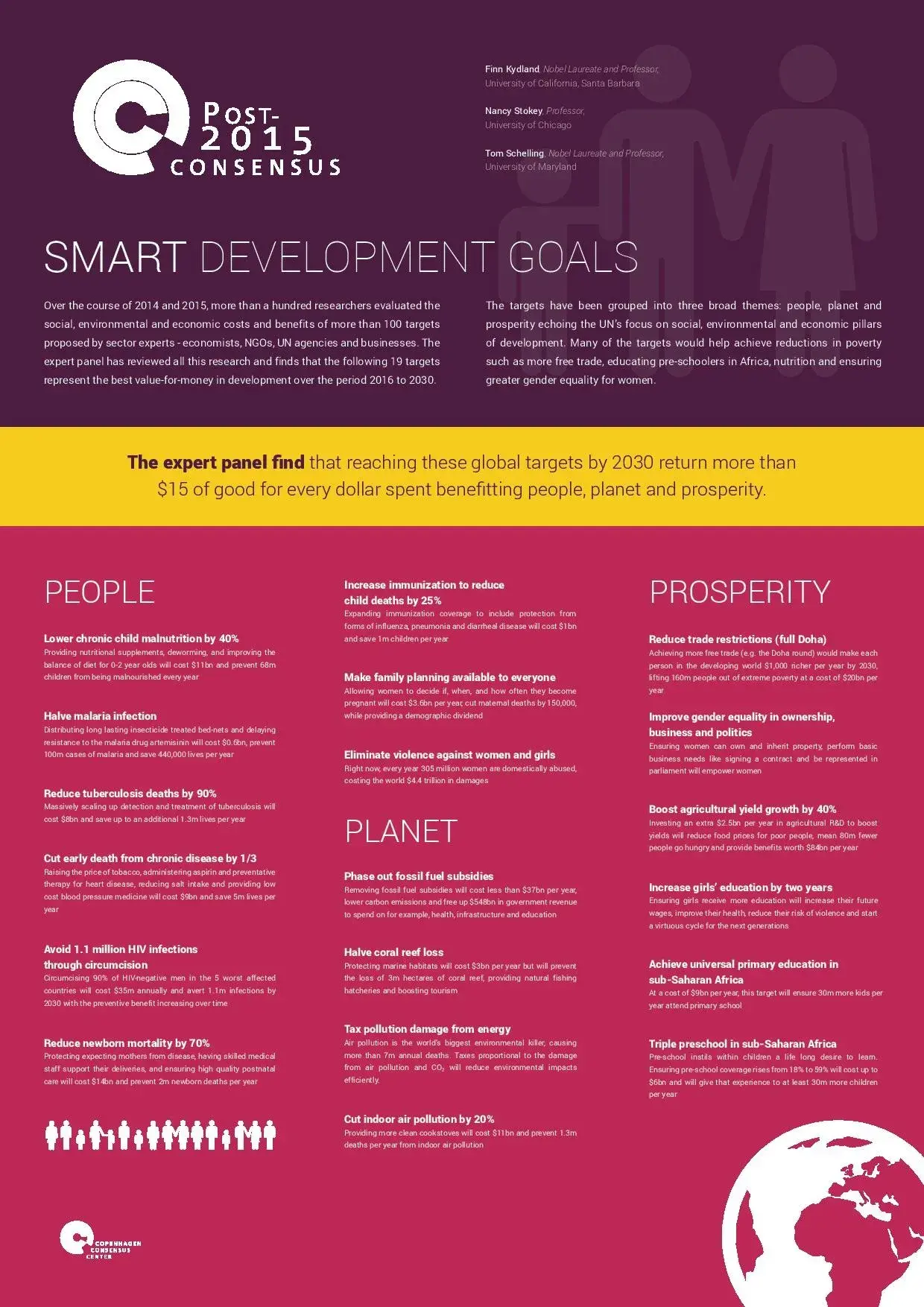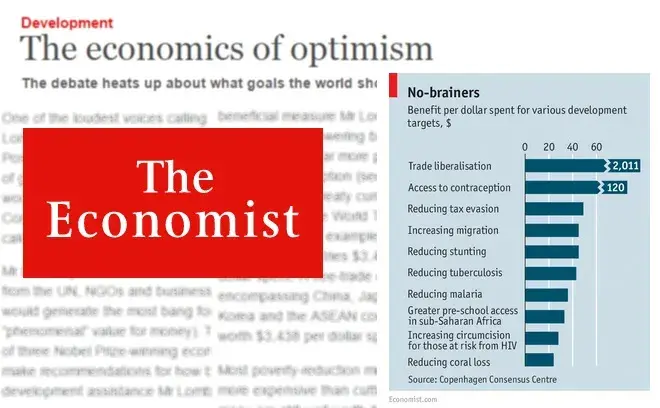Nutrition: What's the smartest SDG target?
![]()
Most people would feel that feeding people properly – particularly young children – is something we simply have to tackle. And it turns out that what looks like a good idea morally is also really good economically.
The first 1,000 days of a child’s life – from conception to age two – are vital for proper development. Poorly nourished infants become stunted (being lower than the expected height for age), and fall behind better-fed ones in developing cognitive skills. This lack of development has real long-term consequences. Stunted children do less well at school and lead poorer adult lives.
What's the smartest target?
As reported in Reuters and in The Wall Street Journal, alleviating stunting can be done relatively cheaply – with a suite of interventions that produce dramatic long-term results.
In total, if an individual works until 50 years old, each dollar spent returns $45. This only accounts for increased earning potential and excludes health benefits of better nutrition including 15% reduction in under-5 deaths, so it is likely a conservative estimate.
The payback changes across different countries. This is because the cost of nutrition interventions are about the same everywhere, but in countries with higher incomes or with higher economic growth rates, the benefit of smarter people are even greater. For Indonesia, each dollar would return $166 in future, higher earnings.
You can read the paper on nutrition here and download the one page PDF here.
The smartest targets for the post-2015 development agenda
What are the smartest targets for the post-2015 development agenda?
In a world of limited resources, we can’t do everything, but how should we prioritize? The Copenhagen Consensus Center provides information on which targets will do the most social good relative to their costs. The final decision on choosing goals will definitely rest on a number of factors, not just economics – but knowing the costs and benefits provides an important piece of information.
The Post-2015 Consensus brought together, renowned experts from the UN, NGO and private sectors with 60 teams of economists to produced 100+ research papers to establish the most effective targets for the post-2015 development agenda within 22 core issue areas: Air Pollution, Biodiversity, Climate Change, Conflict & Violence, Data for Development, Education, Energy, Food Security, Gender Equality, Governance & Institutions, Health: Chronic Diseases, Health: Health Systems, Health: Infant Mortality & Maternal Health, Health: Infectious Diseases, Infrastructure, Illicit Financial Flows, Nutrition, Population & Demography, Poverty, Science & Technology, Trade, and Water & Sanitation.
An Expert Panel including two Nobel Laureates has reviewed all of this research and identified 19 targets that represent the best value-for-money in development over the period 2016 to 2030.
Only have three minutes? Watch our introduction video to the Post-2015 Consensus project.

Making prioritization a factor in the post-2015 debate
An overview of Copenhagen Consensus' ground-breaking research which is shaping the thinking for the 193 governments about to prioritize the smartest development goals for 2016-2030. If you've just read the article in The Economist you might be interested in exploring more about our project, and the research we've undertaken so we have put together an online supplement with more in-depth information.


